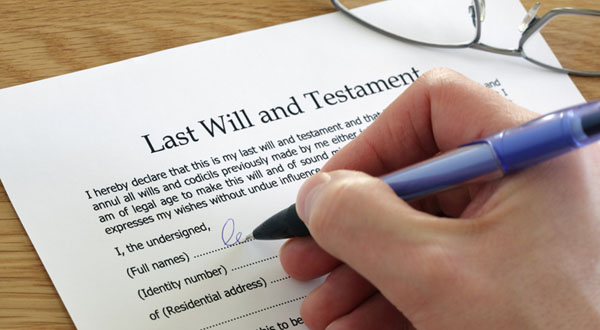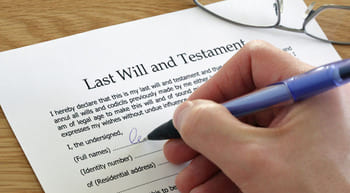Many people in the UK do not have a will, causing difficulties to their families and friends when they die. Here we explain the importance of writing a will.
Wills can be created with the help of a solicitor or you can create your own will online. It is something that everybody in the UK should have to help protect their family and their assets.

Intestacy Rules
When a person dies without making a will, they die intestate. What this means is that their assets will be shared out in a way set out by the Intestacy Rules. This is extremely specific and sets an order of precedence as to who will get what. Whilst this may seem sufficient to many people, there are certain groups in particular who are more likely to object to this.
For example, unmarried couples can have a problem. An unmarried partner will not automatically receive any of their deceased partner’s assets, except for a property if they are registered as owners as joint tenants. In addition, for those who are separated but not yet divorced, their ex-spouse will receive as a minimum the first £250,000. This can be a problem particularly where there are children. In addition, the process of sharing out an estate in accordance with only Intestacy Rules can make it very drawn out.
Benefits of Having a Will
If you draw up a will, either by yourself or through a solicitor, as long as it is valid your assets will be shared amongst people in accordance with your wishes. In addition, it will mean much less stress for any dependants or family members, and it can mean that they receive the benefits of your assets much sooner.
Drawing up a will with a solicitor can help you to reduce the amount of Inheritance Tax that can become payable on the value of the money and the property that you leave behind.
A further advantage is that you can ensure that all of your dependents will be catered for financially if you die.
What to Include in a Will
Whilst one of the key functions of a will is to dictate who shall receive what from your assets, it is not limited to this. It can also set conditions on whether certain people should receive assets from your estate or not, or it can set up a trust fund.
If you have children under the age of 18, your will should also confirm who should look after your children in the event of your death.
Your will can also appoint your executor. The executor is the person required to sort out your estate and share out your assets.
It can be the case that those you hope to benefit from your estate will die before you. Your will can specify what should happen to your estate in the event that this happens.
Do I Need a Solicitor?
It is possible to draw up a will without the assistance of a solicitor, and if you write it voluntarily and are over 18, it is likely to be valid. You will need to ensure that you write your will down and it covers everything that you would like it to and that you then sign it in the presence of two witnesses. Your two witnesses will then also need to sign your will.
Make sure that you keep your will in a safe place. Your solicitor or your bank can store it for you, or you could alternatively keep it with a storage company or the London Probate Service.
When Will I Need a Solicitor?
Certain issues can be complicated. If they apply to you, it may be better to seek legal assistance to ensure that your will is valid and can be followed if you die.
For example, if you share a property with someone who is not your spouse or civil partner, it may be that your share in that property will go directly to them if you die, regardless of what your will says. It will depend on your legal title to that property, which may need investigation by a solicitor.
Another issue which can complicate matters is if you would like to leave money to a dependent who cannot care for themselves - for example, an adult disabled son or daughter. There are ways in which you should be able to leave them funds so that they are managed - a solicitor could talk you through the available options.
If you are aware that you have a former spouse or children from a previous marriage who may wish to make a claim on your will, it would be advisable to seek legal advice in order to ensure that your will is followed.
Other reasons to consult with a solicitor would be if you live outside the UK, own property overseas or even if you are a business owner.
It is also advisable to review your will at least once every five years, and certainly after any major changes in your life. Such changes include getting married, becoming divorced or widowed, moving house or having children, to name just a few.





